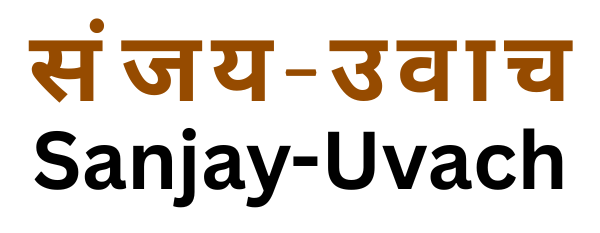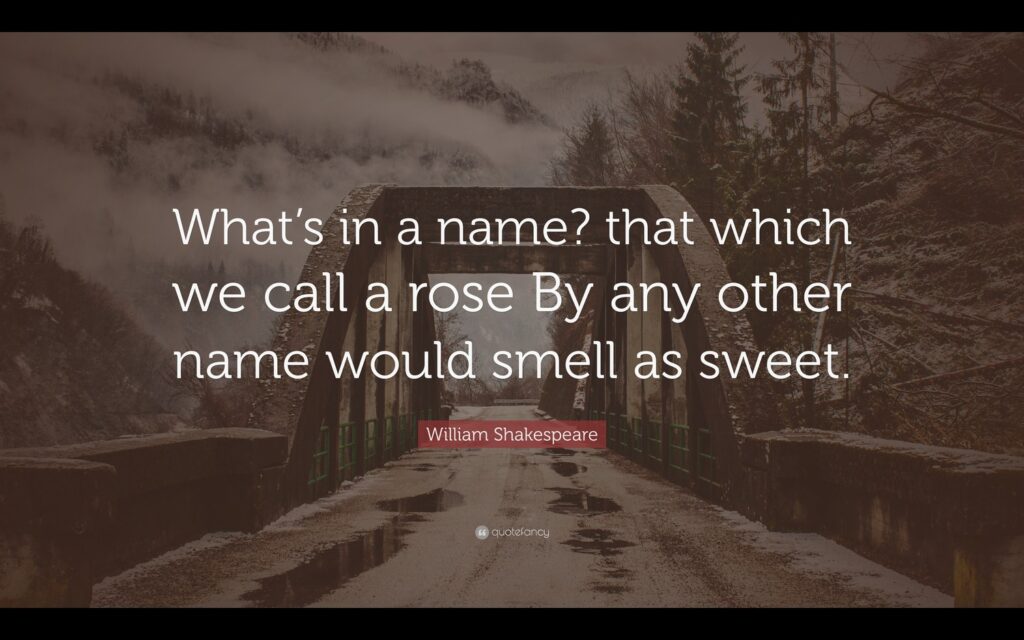With a playful yet serious intent, I started to explore as to why names are so named. Compared to popular names, say, three or four decades back, these days we hear names hitherto unheard of. Some are synthesis of history and mythology. Some are out and out exotic where the effort to appear different clearly shows. Also, there are names which unabashedly mock at others. Then there are some names which are strict no-no. In general, the names reflect aspirations, superstitions and parental predilections.
Two names refuse to go away from my memory. Mr. K.R. Lakhanpal was a senior bureaucrat. I didn’t find anything out-of-the-ordinary in his name till I came to know that his full name was Kuda Ram Lakhanpal. Kuda, in Hindi, means garbage. The story goes that his grandmother wanted to ward off bad spirits and, therefore, chose for him this unusual name. The other one was Nyeusi, one of my house-helps in Nairobi. She was an albino, with complete absence of pigmentation in her skin and hair. A Kisii (a strong, traditions-driven tribe in Kenya), she was named Nyeusi (meaning black in Swahili) to separate her from the Mzungus (the whites).
Ever wondered why people in parts of Punjab, Haryana, Rajasthan and Uttar Pradesh fancy the names like Janrail, Karnail, Hawaldar and Kaptan. These names are aspirational and speak of a kind of socio-economic status that families covet. Consider Sikh names like Angad, Arjan, Hargobind, Hari, Ranjit and Jassa. These names take after the Gurus or the warriors who played key roles in shaping the social and religious milieu of the faith. Take Shiv, Ram or Krishn as given or middle names which are very popular in the south and the north of India. Besides the religiosity they represent, these names imply virtues, righteousness and principles, a set of attributes that families would ideally want their children to have despite all the negativity that one sees around.
It comes out that naming people is not as simple an affair as we tend to think. Wittingly or unwittingly beliefs, pride, prejudices, superstitions, fads and aspirations do come into play.
But there are some who want to stand out. Just for the heck of it. The woke would shout from the rooftop that it’s their right to name their children any which way they want. No gainsaying the fact. But deliberately choosing the names that hurt or pinprick, directly or indirectly, genuine sensitivities of fellow human beings is worrying. One is at one’s wits’ end as to what message is desired to be conveyed when, for example, the likes of the actors Saif Ali and Kareena Kapoor name their son Taimur. To not-so-well informed, the name Taimur resonates a big-time negativity in India. He was a Turco-Mongol who invaded India, called the invasion a Jihad against non-Muslims, plundered our country, slaughtered tens of thousands of civilians, ordered execution of over a hundred thousand prisoners of war from Punjab & Haryana, destroyed cities (Delhi, Meerut and Panipat), desecrated idols, forced non-Muslims to convert, enslaved thousands of men & women and had forty-three wives & concubines. Would one still want to name someone Taimur? Seriously? What could possibly be the prompt here except the attitude that I-give-a-damn.
Have you heard of the names like Raavan Rastogi or Pootna Pandey or Shurpnakha Srivastava or Kans Kapoor or Shakuni Sonkar or Duryodhana Deka or Jarasangha Joshi or Kaikeyi Kakkar or Hiranyakashyap Hajarika or Mahisasur Mangeshkar or Narkasur Naidu or Bakasur Banerjee or Kumbhakarna Kewalramani or Tarkasur Tiwari or Manthara Mishra or Bhasmasur Balasubramaniam. These are Hindu names conspicuous by their total absence in today’s India. The parents consciously keep themselves from drawing from this pool. Why don’t the parents do a Taimur here? Simple. For the reasons of sheer negativity involved with these names.
Coming to Greeks, Egyptians and Jews, why the names like Loki, Hades, Seth, Medusa, Hel and Lilith have been totally abandoned. Likewise, why do Christians keep away from some biblical names like Delilah, Haman, Jezebel, Athalia, Herod, Judas and Pontius. They too can indulge in whataboutery, a’ la Taimur, but choose not to as they want to disassociate with everything associated with these names.
There is a common thread in abandonment of certain names. The characters bearing these names have worked against humanity or betrayed relationships or conspired against institutions or undermined civilizational constructs or grossly misused their powers or indulged in cruelties of demonic proportions. As one delves deeper, one finds multiple narratives underlying these names which today’s India doesn’t wish to be reminded of. Do we, therefore, need profounder reasons to not to name roads, buildings, bridges, markets institutions etc. after Babur, Humayun, Akbar, Jahangir, Aurangzeb, Muhammad bin Qasim, Mahmud Ghazni, Muhammad Ghori, Taimur, Tughlaq, Nader Shah, Abdali, Alexander, Mir Jafar, Jaychandra, Tipu Sultan, Hyder Ali, Ambhi Kumar, Jayjrao Sindia and Man Singh. One wonders as to why some of these names were even considered, in the first place, to name places or institutions of import to Indians. Weren’t the roles of these characters known to all. Or these names were considered to suit certain political inclinations which are being questioned today. Whatever may be the prompt, keeping the memory of these characters alive to sensitize the citizenry of the learnings from the history is understandable. But perpetuating their memories with respect is an insult.
In India, there are no institutions, roads, bridges, buildings named after Reginald Dyer (the British butcher of Jallianwala Bagh in Amritsar) or James Neill (the British General responsible for massacre of thousands of Indian mutineers in Allahabad / Prayagraj) or Américo Tomás (the Portuguese President who wanted his retreating forces to destroy infrastructure, industries and houses as Goa achieved liberation).
The apologists want us to re-evaluate these eminently forgettable names by showcasing a straw of positivity picked up from a big haystack of negativity surrounding these names.
Saddam Hussain who killed thousands of innocent Kurds, mentored an exemplary literacy program which led to 100% enrolments in primary schools. Napoleon who reinstated slavery and violently repressed all uprisings against his rule, forbade titles that were acquired at birth. Hitler, the butcher of Jews, had started a public campaign to ban smoking. Ted Bundy, the serial killer, saved lives by taking calls on a suicide helpline. Stalin who committed genocide and had millions killed, wrote beautiful poetry.
Babur who massacred Hindus, Sikhs and non-Sunnis and boasted of the “towers of skulls of the infidels”, treasured literature. Aurangzeb, a religious bigot of an emperor who imposed jizya on non-Muslims, immured his own father and killed his brother was a patron of calligraphy. Mir Jafar, reviled as a traitor, was otherwise known as a competent military person. Man Singh, a Hindu ruler who collaborated with the Mughal invaders and fought against one of the most revered warriors in the history of India, Maharana Pratap, helped build Kashi Vishwanath temple.
Magnifying a disparate good deed or a stray act of philanthropy or a standalone trait in an attempt to tone down the negative emotions that these names evoke is futile. Overall negativity of their roles in history still weighs heavily on people’s minds. Consequently, these names themselves have become synonymous with utmost negativity. Even a million good Aurangzebs, Tughlaqs, Taimurs, Jaychandras, Hitlers, Ted Bundys etc. cannot dilute the hurt and the pain they had caused.
William Shakespeare was born in England and breathed his last in England. He lived a pretty regular life with his wife and children. The only killing he was involved in was killing of a deer. The only relocation forced on him was within England that too to escape retribution for killing the same deer. He didn’t personally face any invasion, persecution, loot, conversion, massacre, enslavement, rape, destruction and sodomization of beliefs. It is, therefore, fine for him to say What’s in a name because there are not many shades of a singular name that he was exposed to. It is also fine for him to olfactorily universalize all roses as sweet. It is said smell is the sense most associated with memory and if someone’s memory has limited experiences of life and its travails, all roses will smell similar to him. But those who found themselves at the receiving end of brutalities of some of these names, would have different takes on Shakespeare’s wisdom.


Again wonderful & meayningful write up…very analytical mind and observation..which ordinarily no one would notice and think deeply…names certainly reflect person’s personality, mentality and general perception…..
Sir ,
Very nicely written.with these names monone can say ” What is in a name ?”
Impact of such names will be felt all around .
Very good analysis and observation in the day to day matters & happenings and lovely presentation ; it was exciting going through the above narration..True relevance of History to the current situation….keep it up Sanjay ….
Sudhir sathe, Nairobi, Kenya
..was never cognizant of that of your literary attribute… very well written, enjoyed the text
What an interesting take on naming, and that you challenged Shakespeare’s famous quote with so much depth and logic! Read it one go
SUPERB